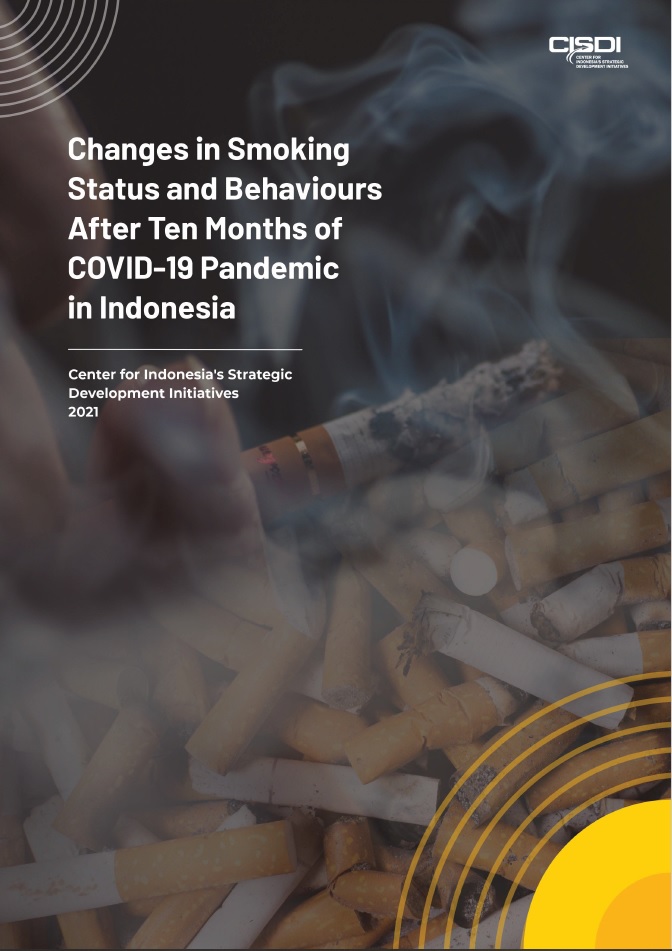As one of the locations with the largest number of smokers in the world and the most severely affected country by the pandemic in Southeast Asia, there are concerns about how the COVID-19 pandemic and its associated impacts may affect smoking behavior in Indonesia. Therefore, this study attempts to explore the direction of changes in smoking status and behavior after more than ten months of the COVID-19 pandemic and the determinants of changes in smoking status and behavior. By collecting nationally representative data of mobile phone users in Indonesia, this study involved 1,082 respondents aged 15-65 years old who worked both in the pre-and post-pandemic periods.
Based on the results of the descriptive analysis, most smokers hardly changed their smoking status and continued to smoke during the pandemic. On the one hand, more than half of smokers maintained their cigarette consumption during the pandemic, while about four in ten smokers responded to the pandemic conditions by reducing their cigarette consumption. We also found that about a quarter of smokers switched to cheaper cigarettes and some smokers switched to a different type of cigarette, especially from clove cigarettes to other cheaper cigarettes. Variations in cigarette prices may provide opportunities for smokers to switch to cheaper cigarettes rather than quit. Therefore, if we are to reduce cigarette consumption, policymakers need to simplify the pricing system to reduce variations in the market price of cigarettes and significantly increase the price of cigarettes.
.png)
